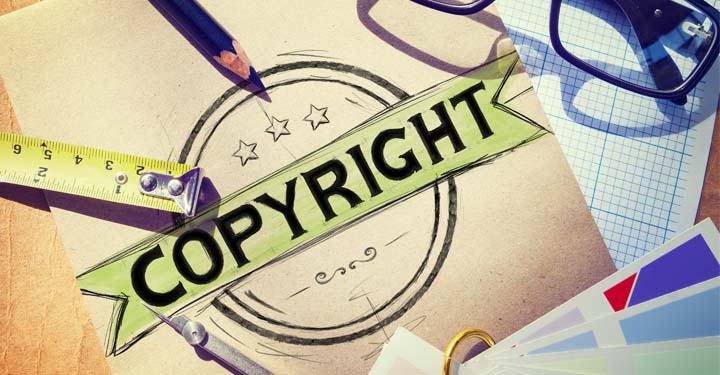You might be looking for information on the internet and still not know if your reading is true. Or wrong. Such as we see most people believe these myths about copyright:
1. I Can Protect My Ideas With Copyright
Every aspiring writer should know copyright only applies to things that can be copied, not to things that can’t be copied, like ideas. In some areas, like inventions, you might be able to apply for a patent.
Copyright applies to the actual recorded work, such as documents, music, artwork, etc. If a competitor used your copyrighted work to promote their own product, for example, by copying or adapting your marketing materials or stealing content from your website, this would be an infringement, and you could take action. However, you can’t stop someone from doing their own work based on a similar idea as long as they aren’t copying your work.
2. I Can Claim Ownership Of A Name Or Title
Aspiring writers know that copyright rules are quite rigorous, and they do not extend to stuff like names and titles that may be accidentally replicated or properly used in unrelated cases. There is no reason why two works cannot have the same title from a copyright standpoint. This does not imply that the name is not protected since it may be covered by other legislation: there may be concerns if the name was a trademark or if it could be shown that the use of the title misleads or confuses the public
3. I Can Send A Copy As Proof That I Own It
This method sometimes called “poor man’s copyright,” may help in some cases, but it is very weak evidence because it is easy to fake, like replacing the real materials inside later.
If you send your work to yourself through courier or the mail (including recorded, tracked, and signed-for services) or any other method that requires you to store the work yourself.
4. Everything On The Internet Is Free To Use Because It Is In The “Public Domain”
This shows a common misunderstanding about what it means for a copyrighted work to be in the “public domain.”
When the copyright for work runs out, it becomes part of the public domain. Usually, this happens many years after the author has died.
5. Anything That Doesn’t Have A Copyright Notice Isn’t Safe
In the US, works published before January 1, 1978, needed notice to keep their copyright. However, this was the exception, not a rule, and it is no longer the case.
Even though this is the case, an aspiring writer should still put a copyright notice on your work. A copyright notice lets others know that copyright exists, which may help to stop them from breaking the law.
6. I Can Take Credit For Someone Else’s Work If I Change It
Every aspiring writer should know that copying or changing someone else’s work is against the law. If you change someone else’s work, it will still be their work, and they have every right to object if you publish it without their permission. They also have the right to get back any money you make by selling their work.
The only safe thing an aspiring writer can do is to make something that isn’t a copy or adaptation of someone else’s work or to ask the rights owner for permission.
There’s nothing wrong with getting ideas from what other people have done, but when it comes to your work, an aspiring writer should start from scratch and not try copying others.
7. I Can Copy 10% Of The Work Without Breaking The Law.
It’s not like that. Any unauthorized use of a copyrighted work could lead to legal action unless it is allowed by fair use or fair dealing rules.
When using quotes or excerpts, no magic number or percentage can be used because each case needs to be looked at independently.
An aspiring writer should ask for permission first to use someone else’s work.
8. It’s Okay To Copy Or Publish Other People’s Work As Long As I Don’t Get Paid For It
Unless you follow the rules for fair dealing and fair use, copying or publishing something without the owner’s permission is an infringement, and an aspiring writer could be sued.
If the use costs the owner of the copyright money (e.g., they lose sales), they could sue an aspiring writer for damages to get back the lost sales and royalties.
9. It’s Hard To Prove That Someone Stole Your Work
This doesn’t have to be the case. Book writer law is mostly civil law, not criminal law, and the burden of proof is lower in civil law.
In a civil case, on the other hand, all the plaintiff has to do is show the court or tribunal that their claim is valid and that the defendant is probably guilty.
In a claim of copyright infringement, the complainant should be able to show that:
If the defendant claims to be the author and the plaintiff disputes the claim, the plaintiff should be able to show that they are the author and/or had the right to the work before the defendant did. For example, they could show that they registered the work before the defendant did.
10. Confusion About Who Owns The Rights To Music Recordings
Every aspiring writer should know that a copyright for a sound recording differs from the copyright for the work on which the recording is based.
Copyright will still protect a new recording of a piece of classical music, even if the original music’s copyright has expired (please see our music copyright fact sheet for more information on this topic). The same reasoning holds for recordings of plays and books.
Conclusion
There are several myths out there to scare new copywriters. However, if you want to be a dedicated and passionate writer, you need to ignore anything that is a hurdle to your successful copywriter career.


